Connection with Nature
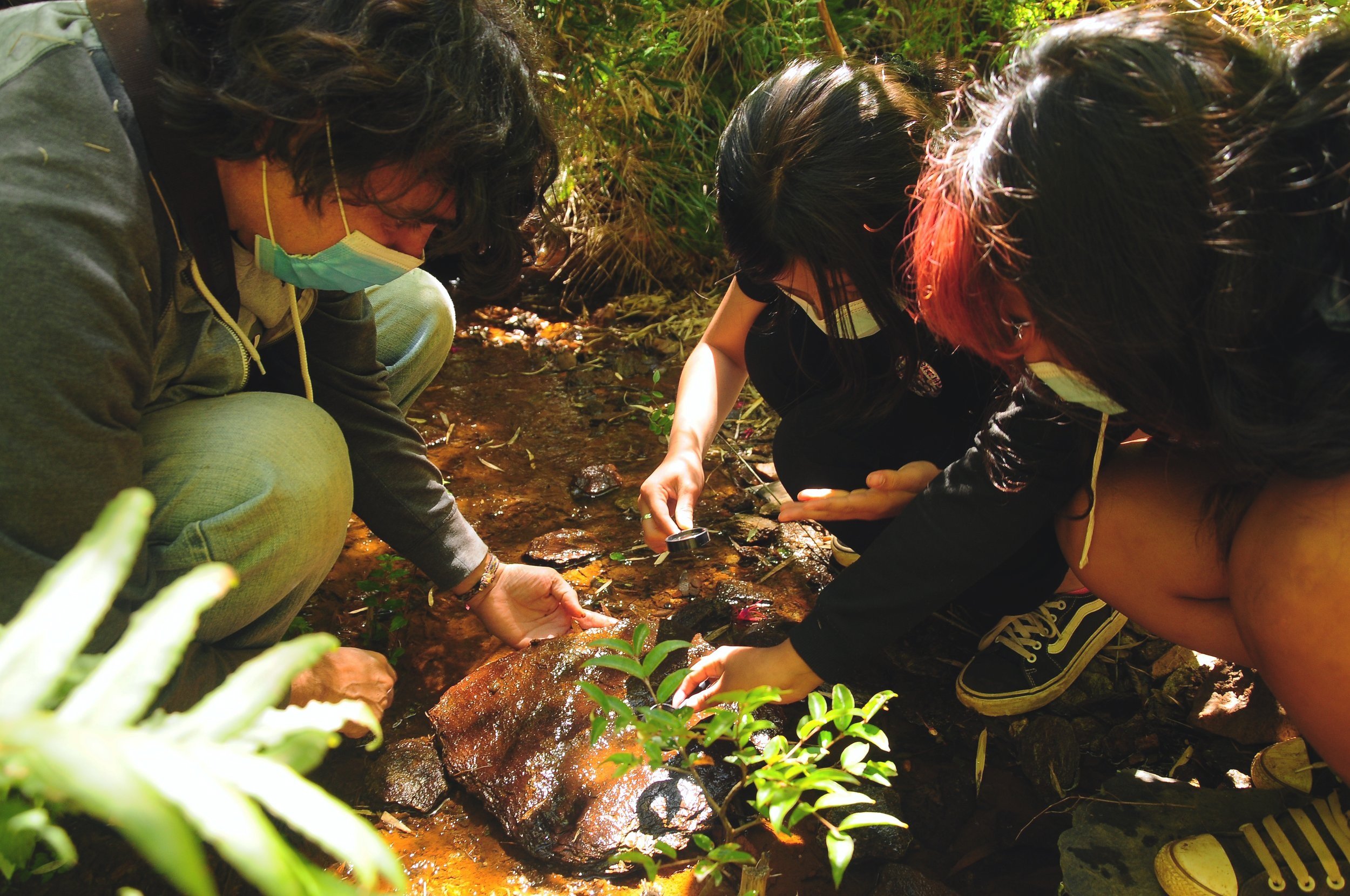
Kids are losing touch with nature, and their mental health is suffering because of it.
Children today have less contact with the natural world than 50 years ago and has resulted in being less connected to Nature. In some cases, the disconnection is so chronic that kids are developing phobias towards the outdoors. For example, phobia of getting dirty, phobia of seeing insects, phobia of being in less than perfect weather conditions. Phobia of the outdoors is known as ecophobia. Ecophobia and the spending of countless hours in front of screens are making kids more sedentary. This new societal reality is worrisome because empirical research is now showing that contact with Nature is an extremely important classroom, not only to create strong values towards Nature, but also to develop emotional, personal and social intelligence and well-being in children (1).
According to a Harvard University Study comparing six nations (2),
“Socioemotional education is not a priority for Chileans.”
Nature, a remedy for the planet and ourselves
At The GAAP, we use our own Nature Discovery Center as an outdoor education classroom to play, explore, and experience Nature, so kids develop mental, physical and emotional well-being. The activities are designed to: 1) awaken enthusiasm, 2) focus attention, 3) reflect, and 4) share inspiration. Outdoor activities generate a sense of freedom, independence and inner strength, from which children can draw upon when experiencing future incidents of stress and uncertainty (3).
“They loved it more than anything in the world.”
— Mother of a summer camp participant, speaking about her children’s experience kayaking and learning about the Carlos Anwandter Nature Sanctuary
Gallery:




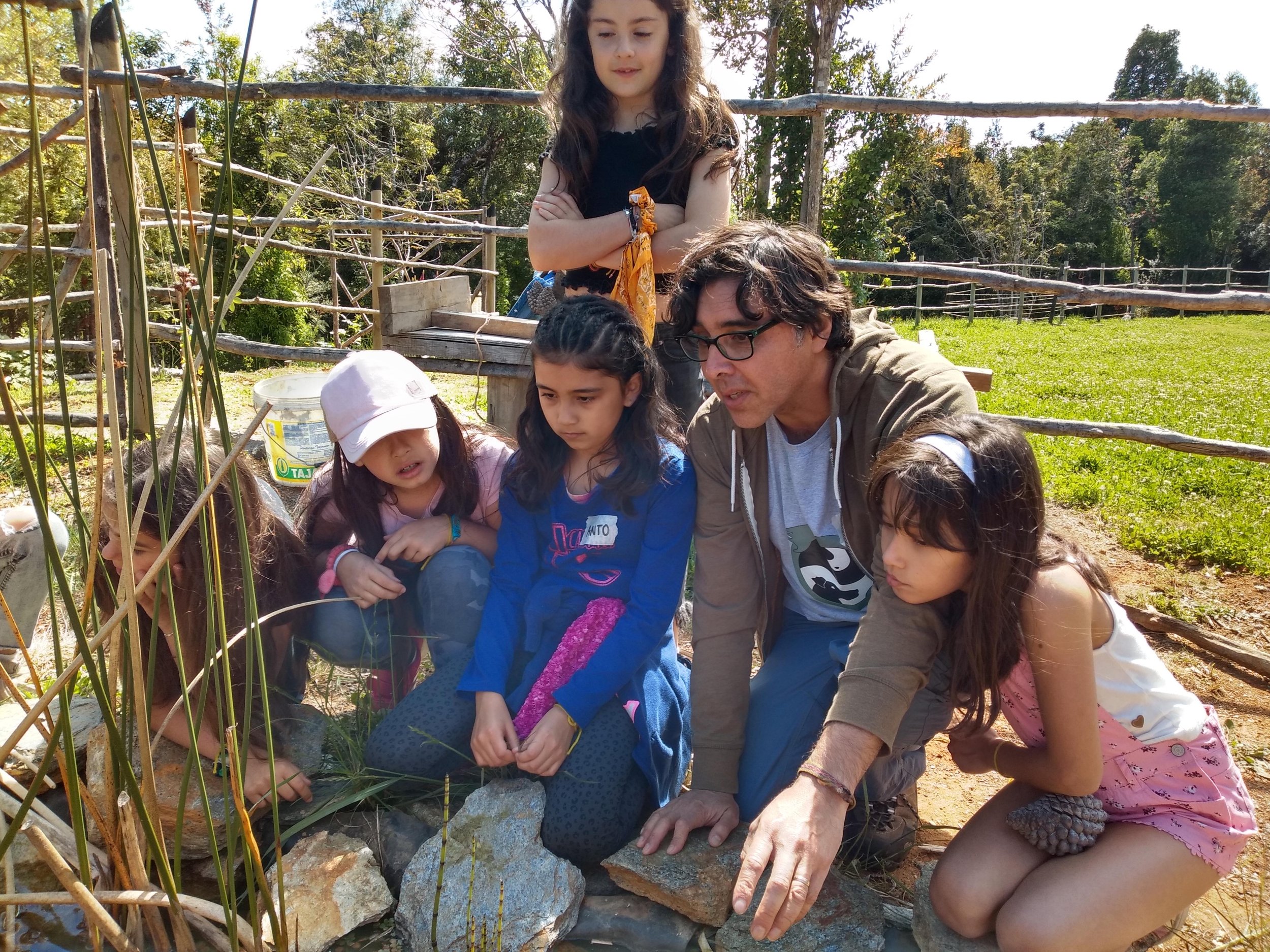

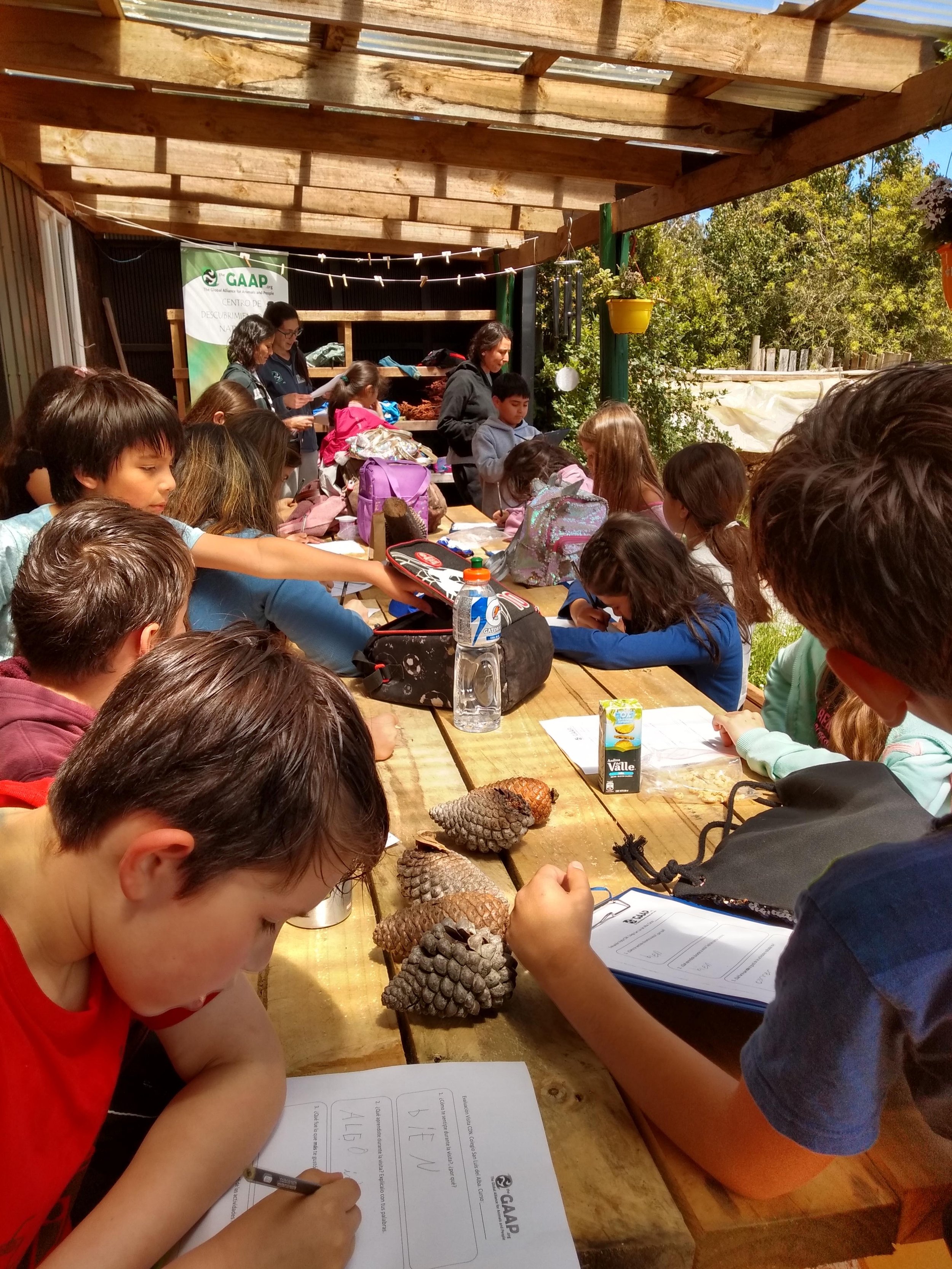
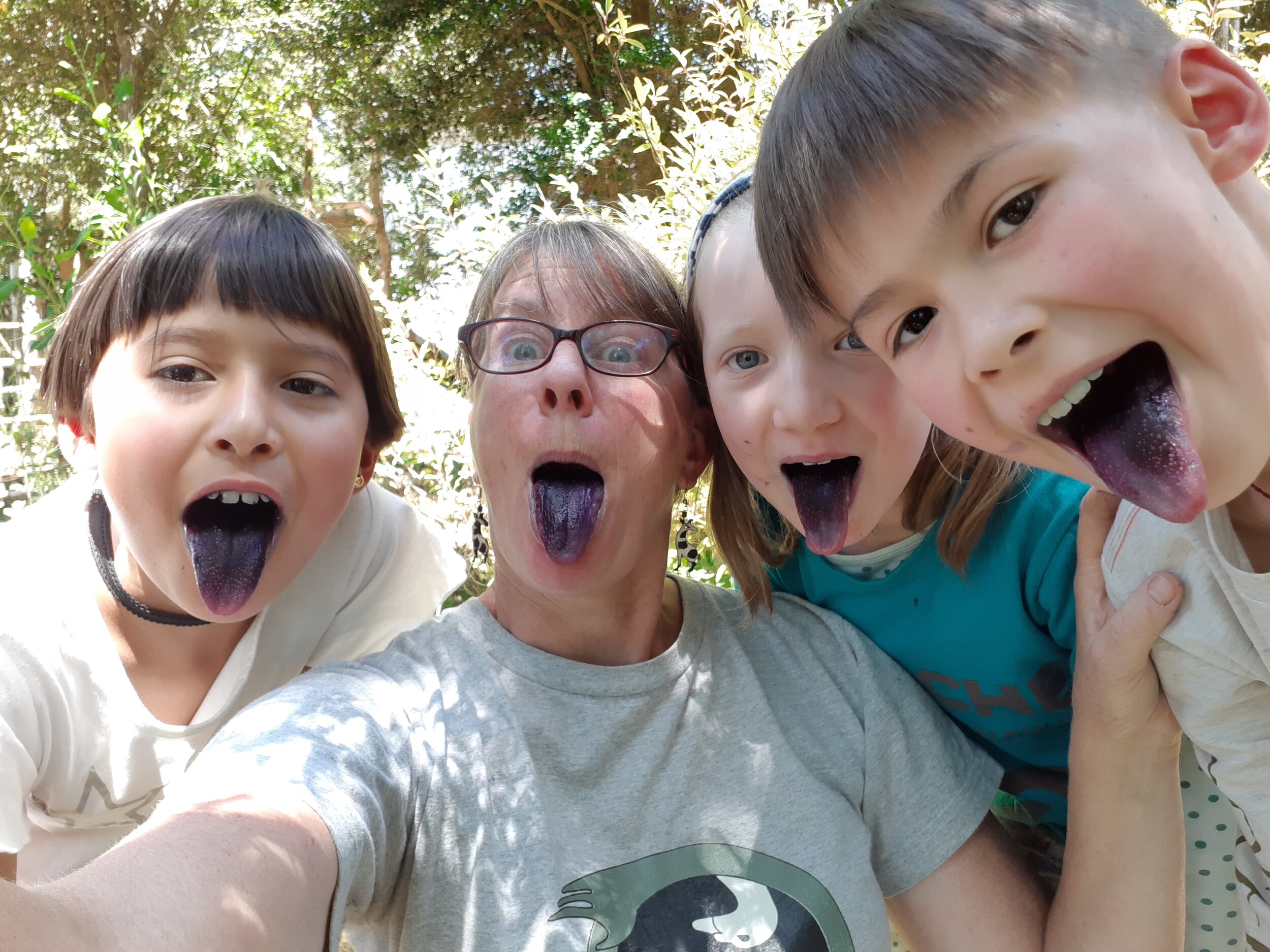
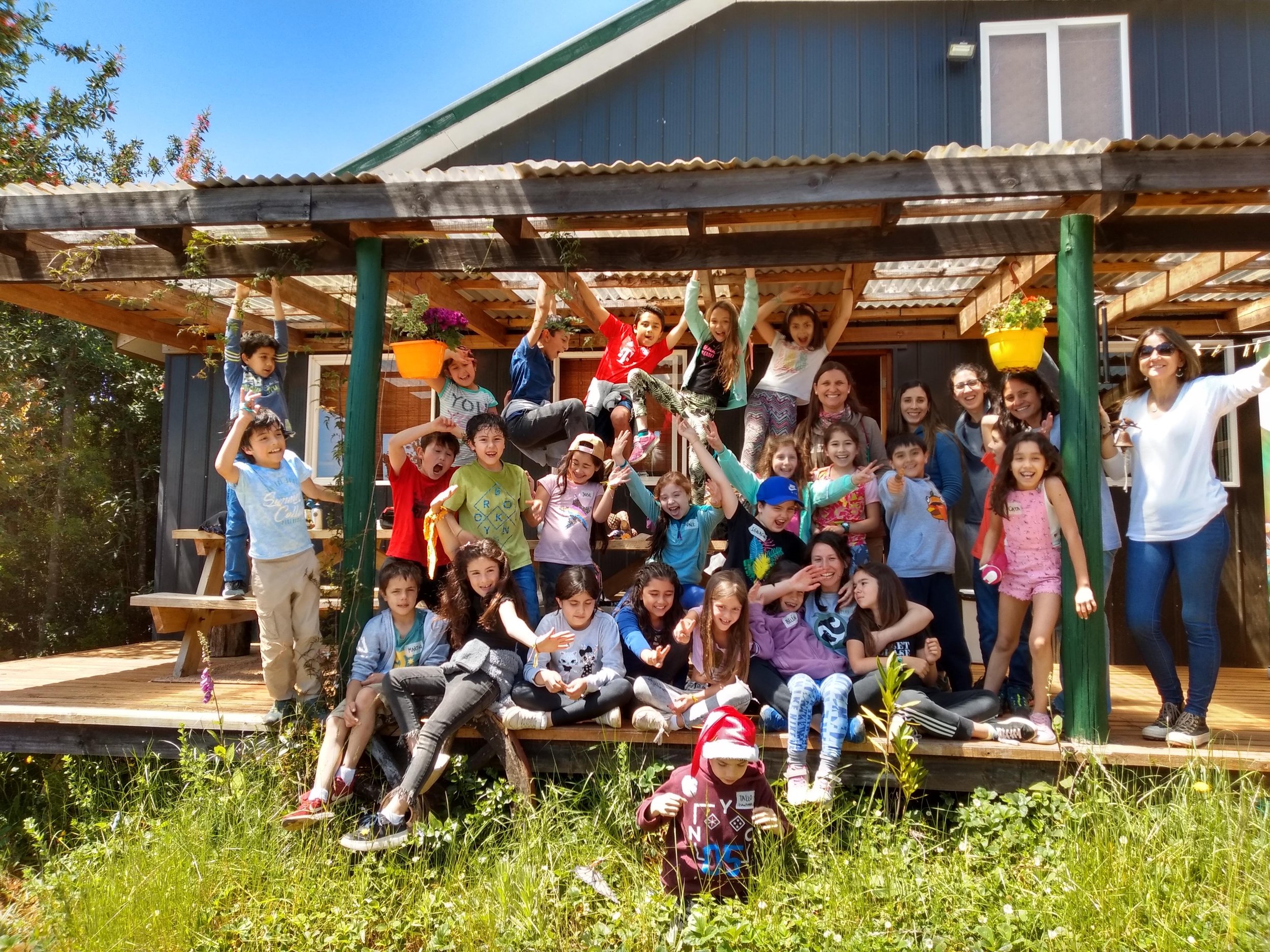
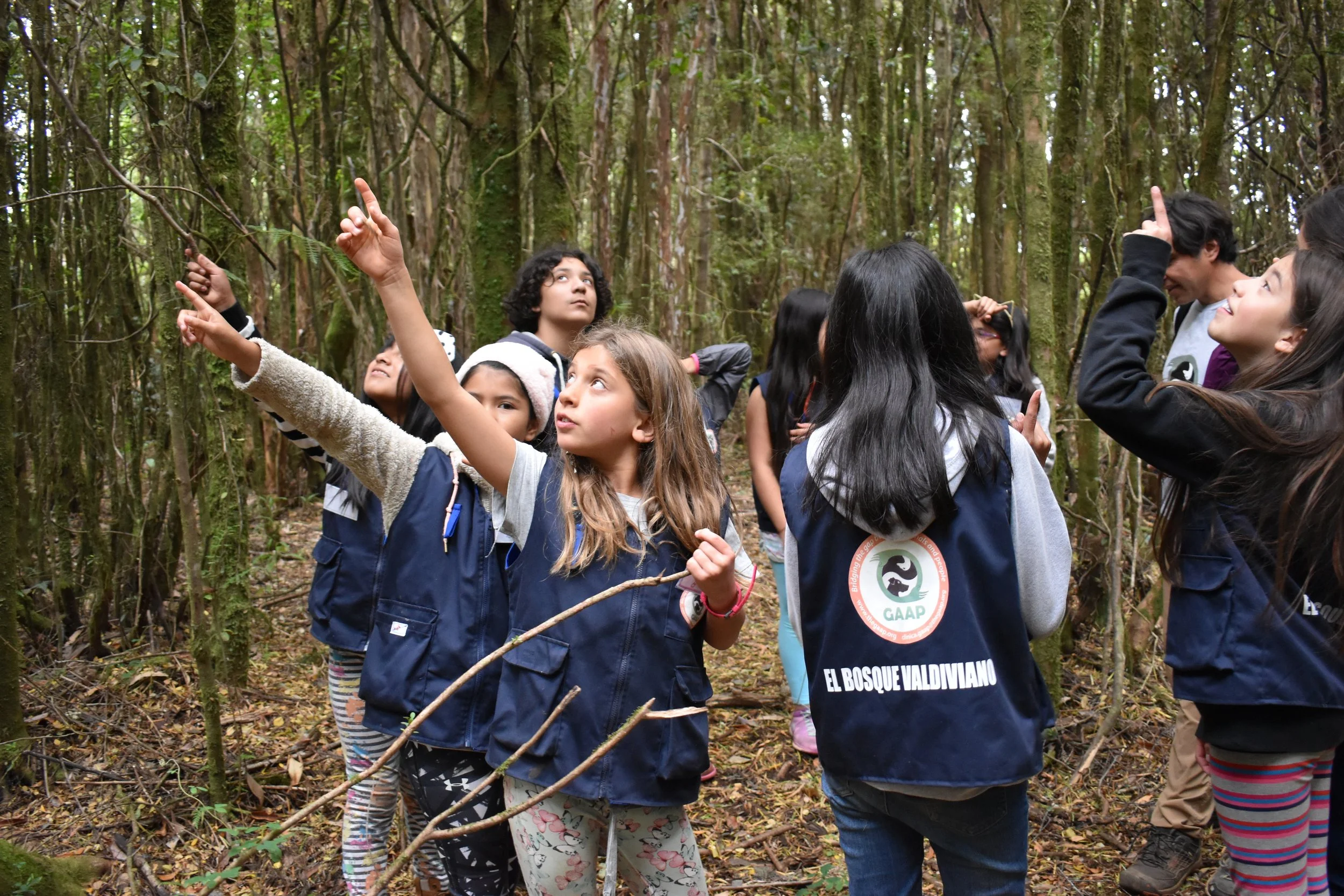

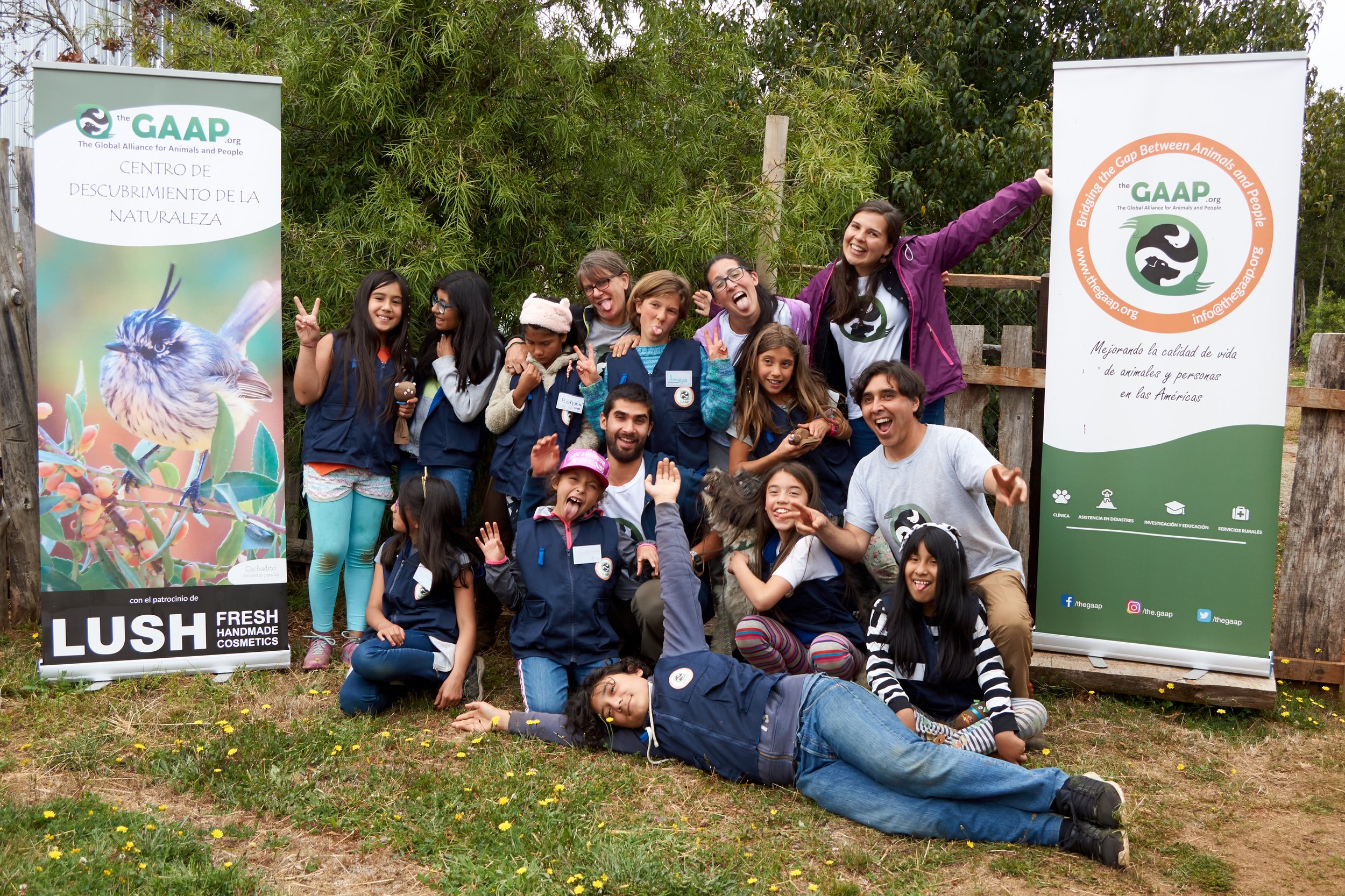

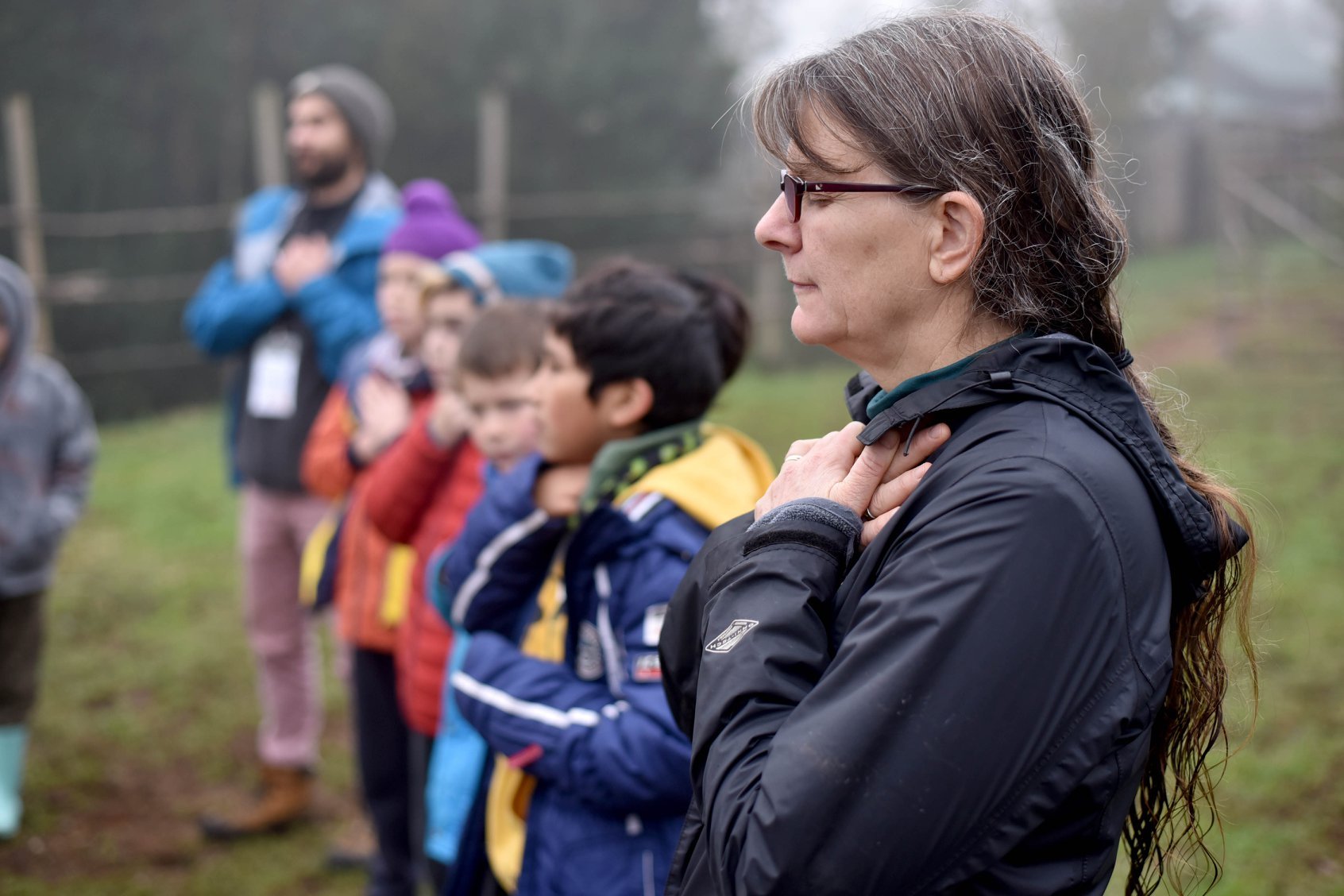

How does time spent in nature relate to One Health?
When kids build their own competencies in fun, exciting ways within nature, they grow to become better leaders who care more about the health of animals, people, and our shared environments. Not only does our program give them a chance to develop skills, but it also accomplishes that goal through joyful, authentic, curiosity-igniting experiences shared with friends. Stronger leaders who have a greater connection to our natural world are more likely to be able to advocate effectively to protect habitats and ecosystems in need, before it’s too late.

Give kids a chance to get curious and build a connection to Nature
Sources:
(1) Schilling SH, Carreño A, Tapia E, Mascayano F, Pitronello R, Santander F, Jorquera MJ, Burrone MS and Alvarado RV (2021) Experts by Experience: Qualitative Evaluation of Adolescent Participation in the Development of a Technological Intervention to Prevent Youth Suicide in Chile. Front. Psychiatry 11:522057. doi: 10.3389/fpsyt.2020.522057
(2) Reimers and Chung, 2016 – Harvard University – comparative study between six nations: Chile, China, India, Mexico, United States and Singapore.
(3) Preuß, M.; Nieuwenhuijsen, M.; Marquez, S.; Cirach, M.; Dadvand, P.; Triguero-Mas, M.; Gidlow, C.; Grazuleviciene, R.; Kruize, H.; Zijlema, W. Low Childhood Nature Exposure is Associated with Worse Mental Health in Adulthood. Int. J. Environ. Res. Public Health 2019, 16, 1809. https://doi.org/10.3390/ijerph16101809







